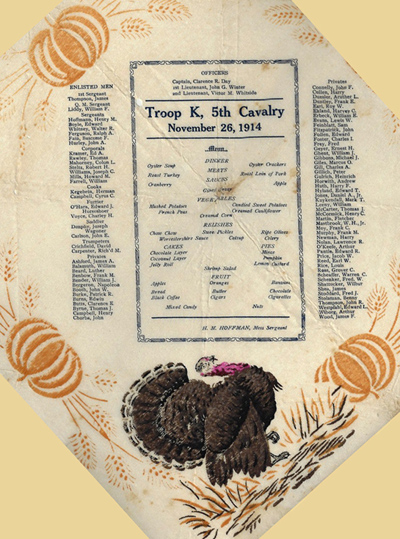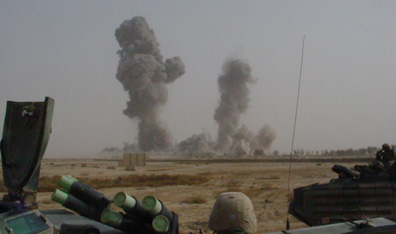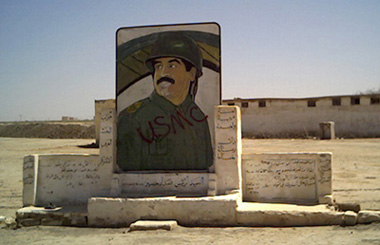As the yearly festival of over-indulgence in food approaches, here is evidence from some of the collections in the Manuscripts & Folklife Archives holdings of WKU’s Department of Library Special Collections that Thanksgiving is more about who’s around the table than what’s being served on it.
Overseas with the U.S. Army Air Corps during World War II, Mitchell Leichhardt of Bowling Green, Kentucky wrote his parents about his 1944 Thanksgiving dinner of turkey, cranberry jelly, dehydrated potatoes, peas, olives, finocchio (“Italian celery with a sassafras flavor”), coffee and ice cream. “I hope it is the last one I’m away from home,” he told them. “I thought of the big dinner you always have and wished that I could be there.”
Also during World War II, in 1943 Alma Sexton of Greenup County, Kentucky described the holiday just past to her soldier-husband. “We didn’t have much for Thanksgiving,” she wrote of the family repast of chicken, “spud” and biscuits, but she was “wishing you was here so you could help us eat them.”
From West Point, Thomas Rawlings Woods wrote his mother after Thanksgiving in 1881. “Thursday was a holiday. We were released from quarters, and excused from recitations.” The mess hall offered a “splendid dinner” but, he confessed, “I thought of our Thanksgiving turkey at home and would rather have slipped down and taken dinner with you than to have attended the grandest banquet in the land.”
A U.S. Army captain described President George W. Bush’s surprise Thanksgiving visit to the troops in Iraq in 2003: “We were seated in the chow hall, fully decorated for Thanksgiving when all kinds of secret service guys showed up. That was my first clue,” he remembered. “Then, from behind the camouflage netting, the President of the United States came around. The mess hall actually erupted with hollering. . . . There was not a dry eye at my table.” As Bush worked his way around the hall shaking hands, the captain hurried through the food line, “got dinner, then wolfed it down,” so he would be ready to meet the President when he arrived at his table.
And here’s an excerpt from a poem by William Shakespeare Hays (1837-1907), Louisville journalist and composer, called “Eli’s Thanksgiving” (excuse both the stereotypical dialect and attitude toward in-laws):
Eli had Thanksgiving dinner, / ‘Twas his day to treat, / Cooked an’ stuffed a big fat turkey / Fo’ de folks ter eat. / Comp’ny sot aroun’ de table, / One dar brought her jaw, / Dun de talkin’ for de party– / Eli’s mudder’n-law.
Click on the links to access finding aids for these collections. For more on Thanksgiving and other holidays, search TopSCHOLAR and KenCat.



